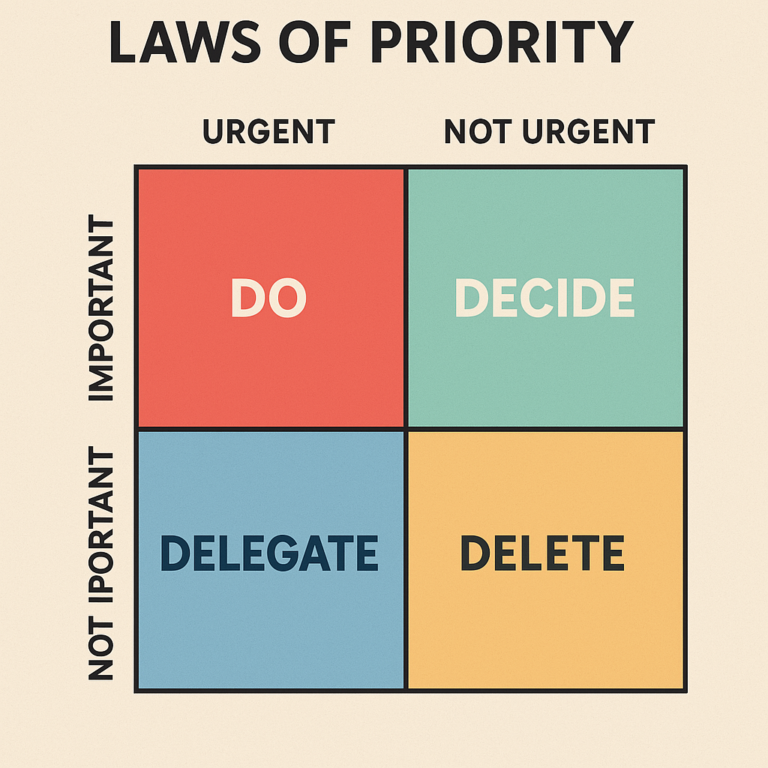Time Management for Students
Time is the commodity we have, but few views as precious. Like me, too much has been spent on entertainment or worry. The youth should grasp this precious commodity as soon as possible, and harness its true power. Below, in no particular order, are some tips for students to effectively use time management.
Create a Master Schedule
By creating a master schedule, you can garner an overview of all tasks and provide a method such as Timeboxing. Read my article on the Timeboxing technique. Using a master schedule also puts you in more control of your tasks and activities. This is done by setting parameters around the time you wish to use, rather than allowing time to escape. Applying a master schedule can be as simple as creating a spreadsheet via Google Sheets or Excel, to creating a bullet journal. Check out my article on blocks of time, where I go into more detail on this idea.
Eliminate Distractions
To remove distractions, use your blocks of time and dedicate full focus on the subject or task. This means removing everything that would interrupt your attention. I recently came across Nyr Eyal book, #Indistractable. He doesn’t just provide methods to help remove distractions, rather a deeper look at why we are distracted. Basically, we distract ourselves to remove or relieve pain. He also identifies proximate causes and has the reader identify the personal reason we distract. It is an interesting read.
Create Goals for Each Study Session
If we don’t create goals, we will never be able to evaluate if we increase knowledge. One of the 12 habits of successful people is ‘continue to improve.’ In order to do this, we need to measure our activity and set goals to achieve. Here, we can apply reading x amount of content or breaking up the larger projects into smaller tasks. This way you can progressively see advancement as well as feeling you are accomplishing.
Create a Project Plan
At its core, project plan is breaking up the overall goal into smaller reasonable, and manageable tasks. Check out my article, What are Projects Really? There are many ways to create a project plan, and each method is unique to the need. I have written many articles on this particular subject. You may find my article The 5 Phases of Project Management interesting.
For example, here, let’s use a major paper that has a deadline. Rather than waiting just prior to the due date, identify the needs first. Then break these down to time-slots. You will need x time to research the topic. You will need x time to take that research and apply toward your paper. You will need x time to write the paper in a readable format. You will need x time to properly cite your work. You will need x time to review the grammar and flow.
Any large goal can be broken down into tasks. Then assign a reasonable time to those tasks. This will give you an idea of how long it will take to complete the goal. That’s project planning. Properly identify the goal. Get the deadline. Identify what needs to be done to attain the goal, and assign how long to do said tasks. Draw this out and see when you should work on these tasks to meet the deadline.
Study in Short Bursts
Being someone who bores easily, I know I cannot study for a full hour. Seems I am not the only one. Realistically the mind cannot remain focus indefinitely. If you made it this far in the article, chances are you already have drifted off or thought of 5 other things before now. It’s natural. Knowing this, use your time blocks and focus for 15 minutes at a time. Some suggest 30 minutes focus then 10-15 minute breaks. Experiment and see where your attention span is and work your time management accordingly. Everyone is different. For this method, I used the Pomodoro Technique. This allows you to set the timer and work accordingly. This mentally allows you to focus, knowing the timer will go off (rather than keep looking at a watch or clock). Check out my article on The Pomodoro Technique.
Summary
These only cover a very small portion of methods and examples to use. At the end of the day, it falls on each of us individually to experiment and see what works. The point is to fully utilize your time, as it is a non-returnable commodity.
Have you ever noticed some people are able to stay organized while getting a massive quantity of work accomplished, while others appear to be busy but never actually produce results? Time management is the key to becoming a successful entrepreneur.
– Clay Clark
Have some techniques to share? Would love to hear them. Also, a shout out to the 2011 movie titled, In Time. The movie is based on time as a commodity.

Matt Cole has high regard for knowledge share. He has a desire to share critical thinking and information. With a Masters in Information Technology and a wide array of certifications, while not working full-time, he wishes to knowledge share through providing insight, information organization, and critical thinking skills.
#KnowledgeShare | Matt Cole | #infobyMattCole




